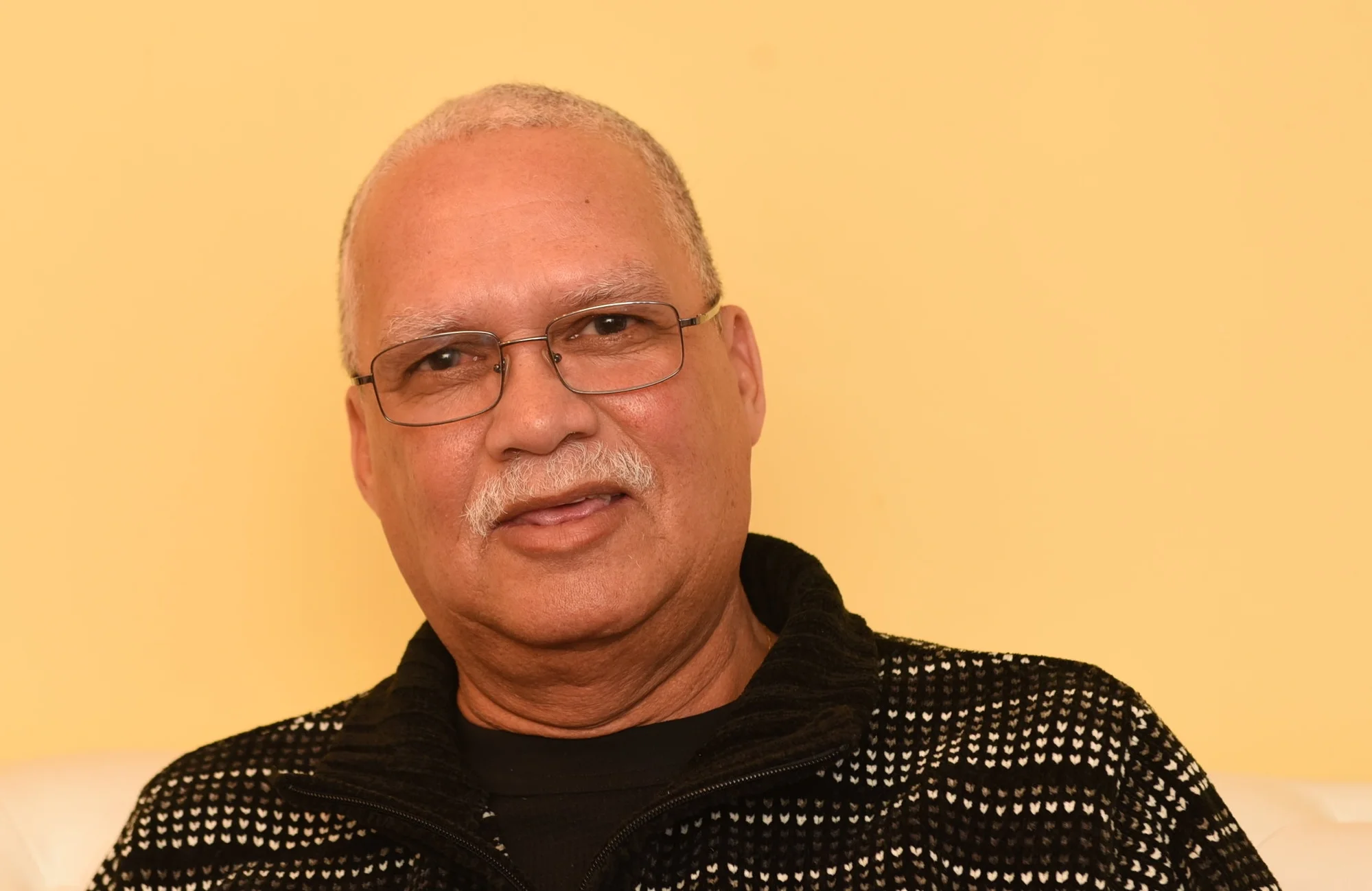Trinidadian politician enjoying retirement in Canada
January 25, 2018
Five decades ago, Ashton Ford joined the People’s National Movement (PNM) party founded 13 years earlier by Dr. Eric Williams who was Trinidad & Tobago’s first Prime Minister.
Last February, he abruptly retired from politics and -- with his wife of 44 years – migrated to Canada to join their daughter, Laka Ford-Williams, who resides with her family in Oshawa.
The former journalist, Arima councillor and mayor, diplomat and party general secretary who turns 67 on February 7, returns to the twin-island republic next week to celebrate his 50th anniversary as a PNM member.
The celebrations will take place on February 18 at the Ashton Ford Park in Arima.
Ford has no regrets retiring a year before the landmark anniversary.
“The job of general secretary is very challenging and the workload was overwhelming,” he pointed out. “It was the right time for me to step away and spend quality time with my family.”
He was the general secretary since 2010 after serving nearly six-and-a-half years as a diplomat in England.
Ford hinted he might have considered serving his country abroad again if he was offered the high commissioner’s position in London last year.
“I wouldn’t have mind accepting it, but it didn’t happen,” said Ford who was an information, public affairs, culture and tourism attaché at the London high commission.
The post went to longtime Tobago House of Assembly head Orville London.
That appointment, Ford adamantly stated, had nothing to do with him retiring from politics a year ago.
“Orville consulted me when he was appointed because he knew that I had served there and I was happy to share what information he needed that would help him in his new role,” he said.
Introduced to the PNM as a boy in the late 1950s meant that Ford was exposed to the party in its embryonic stage and its iconic founder who his father, Charles Ford, had a close relationship with.
“Eric came to our home for meetings and would only eat the food that my mom cooked,” recalled Ford. “He loved pelau. He was a very strict and direct man who didn’t suffer fools easily. He was an avid reader and he encouraged me to read a lot.”
As secretary of the Arima council, part of Charles Ford job was to deliver notices for meetings.
Ford assisted his dad with the deliveries and, at age 15, was a youth speaker at a political meeting in Arima.
When the party launched its youth league in 1960, he was elected to the national executive where he served as assistant secretary.
After a stint as a journalist with the defunct ‘Bomb’ newspaper launched in 1970, Ford secured a seat on the Arima Borough Council in 1977, serving for three years and was elected Mayor of Arima in 1980. He held that position for a year and was an Arima Member of Parliament for five years up until 1986 when the PNM, which was in power since 1956, lost in a landslide to the broad-based National Alliance for Reconstruction (NAR) party led by the late ANR Robinson.
Comprising four parties which were the United Labour Front, the Organization for National Reconstruction, the Democratic Action Congress and the Tapia House Movement, the NAR win was convincing.
The party took almost 66 per of the national vote and captured 33 of the 36 seats.
Ford said the 1986 election loss wasn’t unexpected. What surprised him was the wide margin of defeat.
“There was a downturn in the economy as a result of the sharp decline in oil prices that lowered government revenues and cutbacks were necessary,” said Ford who lost his seat to the late Gloria Thomasos-Pollard, the daughter of Arnold Thomasos who served as House Speaker for 20 years. “Prime Minister George Chambers couldn’t yield to the demands of increasing public servants salaries and there were a lot of protests and demonstrations. We knew that all was not well when William Demas (a noted economist and former Caribbean Development Bank president) prepared a document, ‘Imperatives of Adjustment Plan’ to help stabilize the country's accounts and work toward a recovery. That document painted a grim picture.”
As the country’s foreign reserves tumbled and fiscal deficits mounted, the Central Bank reluctantly agreed to expand exchange controls to merchandise imports with the introduction of the EC-Zero system and a dual exchange rate system was implemented.
“That didn’t sit well with people who were accustomed to the oil boom,” Ford pointed out
With Patrick Manning at the helm following Chambers’ resignation after the party’s worst electoral defeat, the PNM regained power in 1991, winning 21 seats.
“Patrick was someone I grew up with in the PNM,” said Ford. “He was humble, jovial and outgoing and I usually sat right behind him parliament.”
Manning, who served two terms as PM, died in July 2016 after a lengthy illness.
Ford was a communications specialist in the Office of the Prime Minister from 1992 to 1995 and communications officer in the Opposition Leader office after the 1995 election loss to the United National Congress party led by Basdeo Panday.
He was also an analysis & research officer in the Ministry of Public Administration and a communication & research officer in the Ministry of Legal Affairs before his assignment to the Trinidad & Tobago High Commission in London in 2004.
“That was a new challenge that I enjoyed,” he pointed out. “I had the opportunity to travel the country and meet nationals, and interact with West Indian cricket teams when they were in England. I also met several Trinidad soccer players who were in the English league and travelled to Germany when Trinidad & Tobago made its first and only appearance in the World Cup of Soccer in 2006. To see Trinidad & Tobago pride on display at that global event was unbelievable.”
On his return to Trinidad & Tobago, Ford accepted an invitation from Dr. Keith Rowley -- he was the leader of the PNM and the leader of the opposition at the time – to become the party’s general secretary.
As the annual convention, general council and central executive secretary, he was responsible for recording the minutes of the three units, the implementation of their decisions and directions and the maintenance of records on all matters pertaining to the three units.
The general council meets every third Saturday of the month and central executive meetings take place on the first Wednesday of the month.
He also attended regular meetings in the 41 constituencies, including Tobago.
“I had a quite a lot on my plate and I just felt that at my age, it was time to devote more time to my family,” said Ford. “Of course, I will miss politics because I have been engaged in that for most of my life, but I want to be around more with my relatives.”
A total of six of his 10 siblings – two are deceased – reside in the Greater Toronto Area.
Ford and his wife, Dawn whose father was veteran journalist Patrick Chookolingo, have four children.
Eldest child Arlene Leo lives in Las Vegas where the Ford’s spent the Christmas holidays, Laka Ford-Williams has been a Greater Toronto resident for many years, Anthony Ford works with a production company in England and Tricia Ford has a Master’s in zoology and is employed with the Ministry of Planning in T & T.
Settling in Canada was an easy choice for the Ford’s.
“The place is clean and the people are welcoming,” he said. “Anywhere me and my wife go to here, we feel comfortable and at home.”






